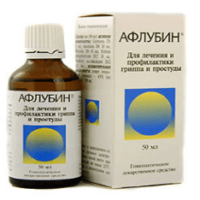 Pregnancy itself is a very difficult phase for some women; imagine having to go through an infection and being treated for it while being pregnant.
Pregnancy itself is a very difficult phase for some women; imagine having to go through an infection and being treated for it while being pregnant.
For a pregnant woman, any infection is a problem, whether it big or small, because a full-fledged treatment cannot be provided and the necessary medication cannot be taken due to side-effects which may lead to complications in the pregnancy.
Ear infection is one of the most common pathologies that many women experience during their pregnancy. Let us see the symptoms, causes and treatments for ear infection in this article.
Causes of ear infection when pregnant
There are a variety of reasons which can cause ear infections. Most of the time, ear infections develop due to colds, allergies, mucus, sinus infections or swollen adenoids.
When a bacteria or viral infection develops, there will be inflammation which will lead to blockage of the Eustachian tubes. This in turn causes the buildup of fluid in the middle ear which develops into a full-blown infection.
During pregnancy, women’s immunity is be weaker than normal and such infections tend to develop very easily. As a matter of fact, many women experience these infections intermittently during their pregnancy. Moreover, ear infection can occur at any time during pregnancy – it could develop in the first trimester or also at the end of your pregnancy.
Home Remedies for Treating Ear Infections During Pregnancy
Home remedies which are tried and tested are a better option during pregnancy but it is always suggested to get it checked with your doctor before undertaking any home remedies. Here are some home remedies that can be followed to reduce the earache and infection.
Vinegar. Both apple cider vinegar and white vinegar are known to be good fighters for all kinds of fungus. Vinegar works on the fungus and removes it during the drainage process. Take a spoon of each vinegar and water and mix thoroughly. Lie down on the side with the infected ear on top.
Soak a cotton plug into the mix and place it over the infected ear. Keep it for 15 minutes and then remove the liquid by tilting head in the opposite direction. Airy dry the ear completely. This can be done twice a day to get rid of the infection within a couple of days.
Salt Bag. If the earache is caused by cold or sinus, it can be relieved by placing a warm bag of salt or warm water bottle on the infected ear as it works as a hot compress. To make a salt bag, take 100g of salt in a pan and heat it. Place the heated salt in a clean cotton cloth and make a pack out of it. Place the bag on the infected ear and give a light compress by dabbing it until the heat it lost.
Garlic Oil. Garlic is known for its antibacterial properties that can ward off the ear infection. Put three drops of garlic oil into the infected ear using a Q-tip. If the infection is severe, it can take a long time to heal.
Mineral Or Olive Oil. Put two drops of mineral or olive oil into the infected ear. This oil breaks down the blocked wax, which can then quickly come out of the ear when tilted. you should visit a doctor if you continue to experience ear pain.
Warm Towel. Heat a towel using a heater or a tumble dryer until it is warm enough for you. Place the warm towel over the infected ear and give a light compress. It helps in relieving the pain.
Steam Inhalation. Steam inhalation is an age-old practice for any sinus, cold, flu related infection. It is also the safest method of home remedy anyone can undertake. Inhalation of steam will loosen up the mucus and alleviate the ear pain and infection which is caused by cold, sinus, or flu.
When your ear infection is a bit severe your doctor can prescribe some safe pregnancy medications for you to relieve pain. Amoxicillin and Tylenol are prescribed for pregnant women suffering from ear infections which relieves ear pains.
Medicated ear drops are also commonly prescribed. The drops can be directly inserted into the ear. This way, the medicine works faster and will have negligible effect on the growing foetus.









